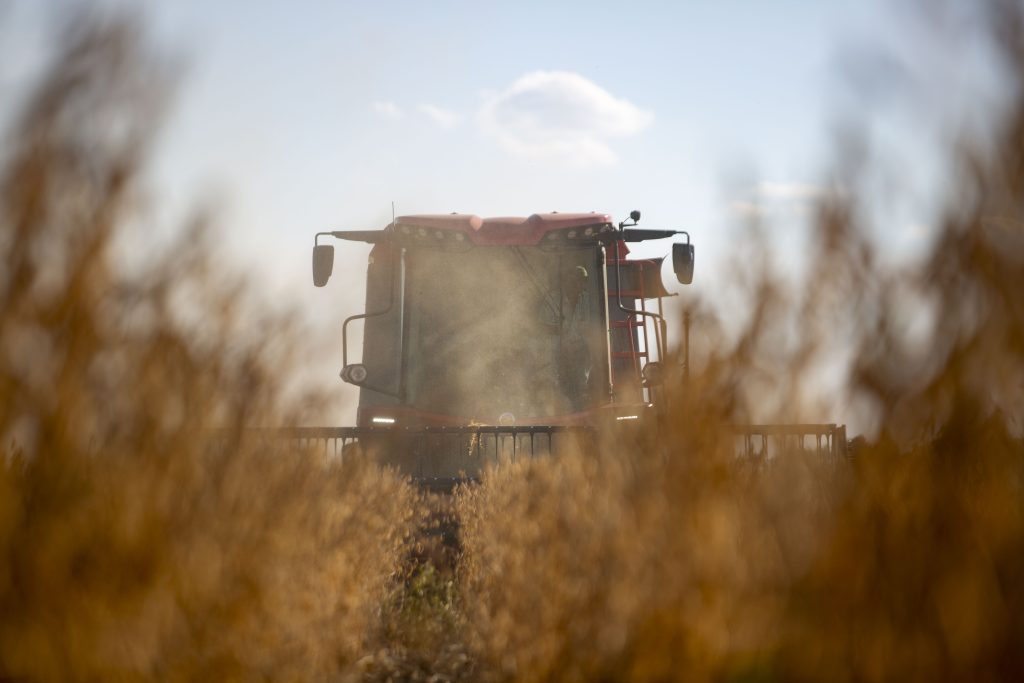
Last year, Missouri Foundation Seed (MFS) received a $3.25 million appropriation from the State of Missouri to modernize its facilities and, ultimately, be more competitive with other states. Today, MFS is hard at work implementing that project, and one of its more impactful investments — a new combine — has arrived and is being put to use for harvest.
MFS was established in 1944 as an avenue for the University of Missouri to take new plant varieties created by CAFNR researchers to market while also providing the highest quality seeds to Missouri farmers.
“What we had been using was a typical commercial combine,” explained Jeff McHugh, MFS director. “This combine is designed for foundation seed operations, and it is going to make an enormous impact on our efficiency during harvest season.”
The difference lies in the cleaning mechanisms of the combine. On a commercial soybean farm, the producer is typically harvesting large quantities of one variety of soybean at a time, but on a foundation seed operation, workers are harvesting smaller amounts of dozens of varieties of soybeans — and the combine has to be cleaned between each variety to prevent cross contamination.
Sean Black, manager at MFS, explained that the cleaning process of a traditional commercial combine takes about eight hours and involves a lot of water. This is particularly problematic when the harvest season stretches into December, and it often has for MFS due to the inefficiencies of the cleaning process.
“This is really a very dirty job,” Black said. “It’s a job that you do because you are passionate about research and you are passionate about helping producers of Missouri-grown products.”
With the new combine, the cleaning is pneumatic — uses compressed air rather than water — and only takes about two hours. This means not only better working conditions for those helping with the harvest, but also completing harvest earlier and reducing bean spoilage.
“Before, we would have a lot of bean spoilage because they were just sitting in the fields and we couldn’t get to them in time,” Black said.
In addition to the new combine, the modernization project includes a complete renovation of MFS’s seed cleaning facility. Equipment for this project is ordered, and construction is slated to begin this spring so that it is complete by next year’s harvest.
“By this time next year, our entire operation is going to be safer and more efficient,” McHugh said. “It’s really going to allow us to serve Missouri farmers in bigger, better ways.”,
MFS is part of the Missouri Agricultural Experiment Station (MOAES) in the College of Agriculture, Food and Natural Resources (CAFNR).
“We are so fortunate to have great partners like the Missouri Soybean Association and industry leaders and legislators to advocate for us,” said Shibu Jose, CAFNR associate dean for research and director of MOAES. “We are so grateful for their support. The new funding for the Missouri Foundation Seed will help revolutionize the way we do business.”
Currently, MFS offers 26 varieties of soybean seeds and five varieties of wheat seeds to farmers. The modernization project will allow MFS to offer more varieties of both. In addition to offering new varieties of seed developed by CAFNR researchers, all seeds sold through Missouri Foundation Seed go through a rigorous certification process to ensure quality.